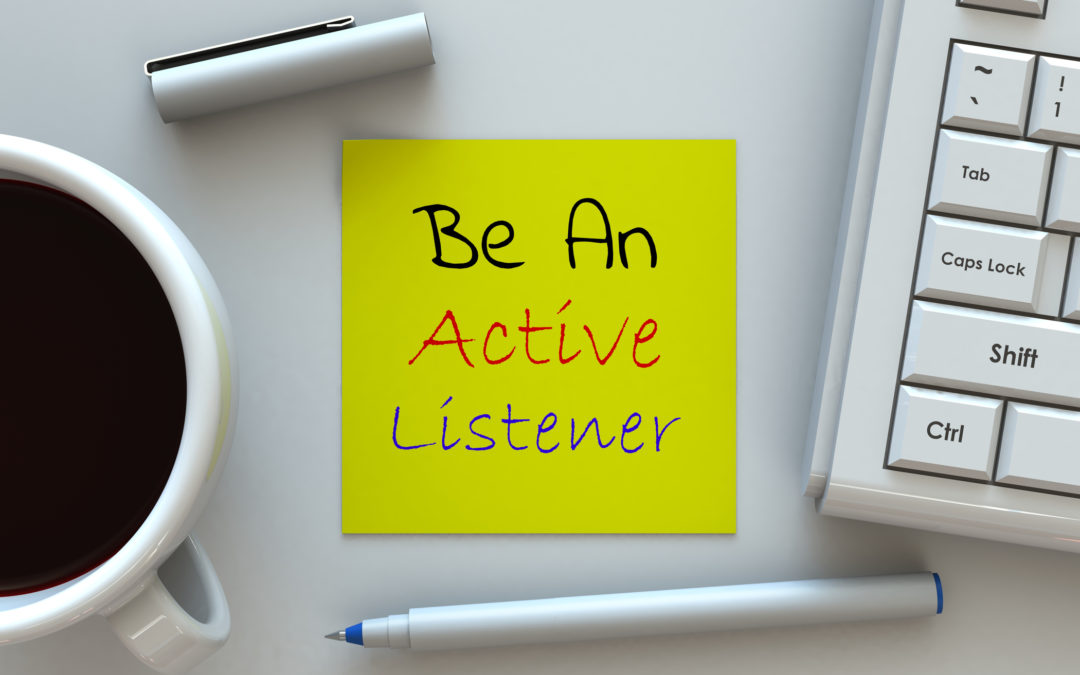Good listening skills will enhance your success in the workplace. For example:
- John launched a new product based on a customer’s complaint. Although the customer had spoken about the problems with the previous product many times, nobody had actually “heard” what he was saying. When John listened actively, he understood what the customer wanted from the product. As a result he was able to launch the new product that became a huge commercial success.
- Sarah is a temporary employee who has recently been placed on a new assignment. She paid careful attention at a training session to the speaker. She also asked relevant clarifying questions to understand the job responsibilities. This helped her be a success on the job from the start.
Why should you listen at the workplace?
Listening is as much of a leadership responsibility as it is of the employees. Some thirty-five studies highlight the fact that listening is the most important skill required to succeed in business, according to the International Listening Association. Leaders and employees who listen are better able to manage or collaborate in increasingly diverse environments.
Successful supervisors and recruiters focus on listening for 80 percent of the time during interviews when hiring temporary help or for permanent employees.
Active or effective listening involves full concentration on what the speaker is saying instead of passive hearing. Listening skills refer to understanding what is being said as well paying attention to the non-verbal cues. Studies show non-verbal cues or body language makes up 55 percent of the communication.
In active listening, all the senses are fully engaged in what is being conveyed. At the workplace, it is common for both leaders and employees to miss the messages by thinking about what they will say next instead of focusing on the message. Lack of listening skills at the workplace can impact productivity, lead to conflicts or misunderstandings, and affect project deadlines.
What are the benefits of good listening skills?
Improved communication:
Listening skills in the workplace prevent miscommunication or misinterpretation. While the presenter is often blamed for his or her poor presentation skills, the crucial responsibility of understanding and interpreting what is being said lies with the listener as well.
Better relationships:
Good listeners develop strong and healthy interpersonal relationships. Listening skills help prevent misunderstandings that can have a negative impact on the work environment and engagement levels.
Helps learn new skills:
Listening skills are important for success at work and for your personal growth and development. Active listening is the best way to learn new skills and grasp new concepts. Listening actively during training sessions or performance reviews can help improve on key areas and achieve professional goals.
How can you become a better listener?
Pay close attention:
Give your undivided attention to the speaker, take in both verbal and non-verbal cues and acknowledge them. Look directly at the speaker and banish distracting thoughts or other environmental distractions.
Be aware of body language:
Your body language and posture also play key roles in the entire communication process. Adopt a posture that shows you are interested and open to receiving the message. Nod frequently and encourage the speaker with appropriate verbal comments.
Ask questions:
Even when you are listening, you may not be interpreting the message correctly. Clarify the meaning and context by asking relevant questions and summarizing key points of what you understood.
Don’t interrupt:
Allow the speaker to finish speaking before asking questions or summarizing. Refrain from frequent interruptions or the tendency to finish off the other person’s sentences.

